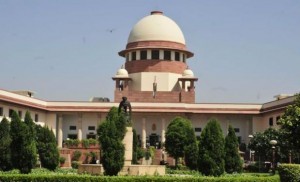Criminal Law : Code of Criminal Procedure, 1973 :
Criminal law is a branch of public law. civil law is related to the disputes between two parties. Criminal law is related to the public concern.
Criminal law has been codified into two parts :
-
Substantive Criminal law
-
Adjective Criminal law
Substantive Criminal law defines offenses and provide punishments where as Adjective criminal law prescribes procedure to enforce the provisions of the substantive criminal law. Basically, the criminal procedure code is an Adjective law of procedure. But some provisions of the code are in the nature of substantive law. The code of criminal procedure is abbreviated as CrPC.
The object CrPC can be summarized as follows :
- To control and regulate set up for investigation and trial of offences
- To provide machinery for implementing the substantive criminal law
- To protect the society from criminals and law breakers.
- To make the procedure simple and ensure justice
- To maintain uniformity in enforcement
- To ensure a fair trial for the accused
Extent of the Criminal procedure Code :
The Code extends to the whole of India except the state of Jammu and Kashmir as it is Curtailed by Article 370 of the Constitution of India. The provisions of this cod, other than those relating to chapter VII, X, and XI shall not apply to the state of Nagaland and to the Tribal areas in Assam.
Scope of the Criminal Procedure Code : Supreme Court
The code provides the machinery for the investigation of crime, apprehension of suspected criminals, collection of evidence, determination of guilt or innocence of the accused person and the determination of the punishment of guilty. Additionally, it also deals with public nuisance, prevention of of offenses and maintenance of wife, child and parents.
According to section 4 and 5 all the offenses under the Indian penal code, 1860 shall be investigated, inquired into tried and otherwise dealt with according to the provision hereinafter contained. All the offenses under any other law shall be investigated, inquired into tried and otherwise dealt with according to the same provisions, but subject to any enactment for the time being in force regulating the manner or place of investigating, inquiring into, trying or otherwise dealing with such offenses. The code has come into effect from 1st april 1974. It received the assent of the president on 25th January 1974.
The Code of Criminal procedure Act contains the following : Supreme Court
- 484 Sections
- 38 Chapters
- 2 Schedules
- 56 Forms
Contact the best Lawyers for Supreme Court / High Court :
+91-9994287060
Code of Criminal procedure Amendment Act 2008 : Supreme Court
Code of criminal procedure 1973 has been amended to bring reforms in the criminal justice system. Now the name of the new code is the code of criminal procedure ( Amendment) Act, 2008. It came into effect from December 31 2009. it incorporates the recommendations of the law commission, the justice Malimath committee's report and the guidelines issued by the supreme court. Lawyers stoutly opposed the amendments relating to arrest, notice of appearance before a police station and adjournments. Let us examine some of the amendments.
- Sec 2 - Definition of Victim
- Sec 24 - Victim can engage an advocate to support the prosecution.
- Sec 26 - Courts by which offences are Triable ?
- Sec 41A - Notice of appearance before police officer.
- Sec 41B - Procedure of arrest and duties of officer making arrest.
- Sec 41C - Control room at districts
- Sec 46 - How Arrest made ?
- Sec 54 - Examination of arrested person by Medical officer.
- Sec 55A - Health and safety of arrested person
- Sec 60A - Arrest to be made strictly according to the code.
- Sec 157 - Statement of the Women victim to be obtained in a safe place or a place of her choice and by a women police officer.
- Sec 161 - Use of Audion - Video for statements
- Sec 164 - Use of audio - video for confession / statement
- Sec 167 - Procedure when investigation cannot be completed in 24 hours
- Sec 172 - Dairy of proceedings in prosecution
- Sec 173 - Investigations of child sex abuse to be done in time bound
- Sec 195A - Procedure for witnesses in case of threatening, etc.,
- Sec 242 - Evidence for prosecution
- Sec 275 - Witness can be done by using electronic Technology
- Sec 309 - Power to postpone or adjourn the proceedings
- Sec 313 - Power to examine the accused
- Sec 327 - In Camera trials and identity protection
- Sec 328 - Procedure in case of accused being Lunatic
- Sec 329 - Procedure in case of trial of person of unsound mind
- Sec 330 - Release of person of unsound mind pending investigation
- Sec 357A - Victim Compensation
- Sec 372 - Right to appeal for the victim against the verdict of trial court
- Sec 437A - Bail to require accused to appear before next appellate court
Contact the Best Law firm for Solutions Cases pending in Supreme Court / High Court :
CALL : +91-9994287060
Constitution of Criminal Courts

